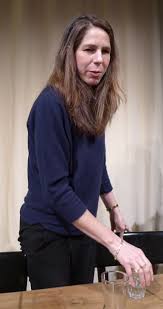Rachel Kushner [1968-0] American    
Rank: 102
Writer
Rachel Kushner is an American writer, known for her novels Telex from Cuba and The Flamethrowers. She lives with her husband and their son in Los Angeles. Romantic, Finance, Intelligence, Relationship, Space |  |